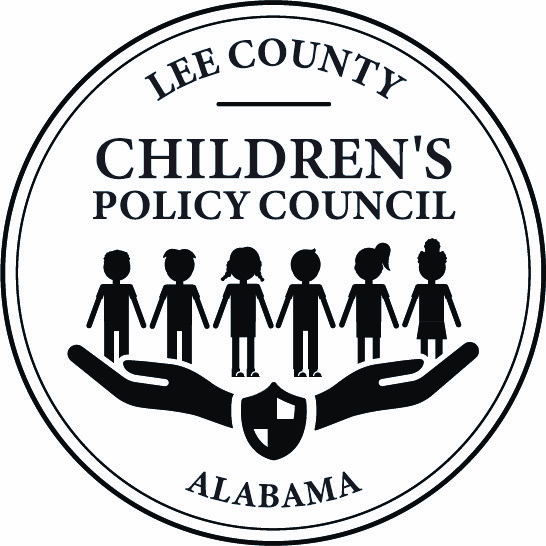By Morgan Bryce
Editor
In response to increasing incidents of suicide and discussion around mental health, the Children’s Policy Council of Lee County recently released a suicide prevention protocol for the community to diagnose and react to signs of suicidal thoughts or tendencies among area youth and teens.
According to information provided by the Children’s Policy Councils of Alabama website, the system was voted to be implemented in counties statewide in 1999 “after the Alabama legislature revised a previous 1975 law that “mandated local juvenile judges to form local juvenile justice coordinating councils” and that those councils consist of “(several) categories of mandated members of the councils while giving each council the responsibility for selecting an additional seven at-large members.”
The Lee County Children’s Policy Council is headed up by Family Court Judge Mike Fellows, with Chief Probation Office Darryl Johnson serving as chair. The Children’s Policy Council formulated a Mental Health/Substance Abuse sub-committee with a goal to address these concerns in the community.
The sub-committee is headed by Jean Spicer, East Alabama Mental Health, and Amy Tatum, Lee County Youth Development Center are committee co-chairs.
“We felt like this was an issue that many here in our community were talking about. We’ve had too many instances of suicide here in our county in the past few years, and the result is families and friends who are heartbroken. Our hope is that through this protocol and training, the community will be more informed and our youth will be more safe” Spicer said.
The group is working to distribute the information to agencies who work with youth and place it in key public areas where it can be an asset to the community at-large.
Statistics provided by the Alabama Foundation for Suicide Prevention and Alabama Department of Public Health from as recently as 2017 indicate that suicide is prevalent statewide, particularly among males:
- Suicide is the second-leading cause of death for people ages 10 to 34 in Alabama
- Alabama’s suicide rate of 17.1 deaths per 100,000 is higher than the US average of 14.5
- Firearms accounted for 51% of suicide attempts nationally, with a 69% rate in Alabama.
Following is a copy of the council’s recently issued protocol in its entirety, written verbatim:
If there is an immediate health of safety threat, call 911. If there is a present threat of suicide without an immediate safety risk, do the following:
1) Notify a parent or guardian immediately.
2) Do not leave the youth alone.
3) Safely remove any means that might be used for self-harm.
4) Be open and direct. Do not express shock or judgment. Do not promise to keep it a secret.
5) Send them to the closest emergency room. Call ahead to inform ER staff. Provide information re: mental health treatment, current medications and substance abuse
6) Make sure the ER staff is aware of the warning signs noted below.
If the child is not presently threatening self-harm, but reports suicidal thoughts:
● direct parent/guardian to contact a counselor. If the child is involved with a counselor, the parent/guardian should inform the counselor of the child’s suicidal thoughts.
● the parent/guardian may contact East Alabama Mental Health at 334-742-2877 or 1-800-815-0630.
○ during business hours (8 a.m. to 4:30 p.m., Monday through Friday) EAMHC Outreach will connect to Family and Children’s Services who may arrange for an assessment or may send the child directly to the ER. If hospitalization is indicated, the FCS therapist/supervisor will serve as liaison with East Alabama Medical Center’s Psychiatric Unit regarding admission. If hospitalization isn’t indicated, the therapist will work with the youth and family to develop a safety plan.
○ After 4:30 p.m. on weekdays, weekends and holidays, the EAMHC answering service will contact the Emergency Services On-Call therapist. The Emergency Services therapist will assess for hospitalization. If hospitalization is indicated, the On-Call therapist will serve as liaison with EAMC’s Psychiatric Unit regarding admission. If hospitalization isn’t indicated, the therapist will work with the youth/family to develop a safety plan and will refer for follow up at FCS.
● Other resources: clergy/ministers, private counselors, local psychiatrists, AU Psychological Services and AU Marriage and Family Therapy Center may also be able to assist.
Be prepared to provide: information regarding the situation, along with name, address, date of birth, insurance information, mental health treatment history, current medications and previous or current substance abuse.
Warning signs of suicide include:
• Thinking about, talking about or writing about wanting to harm oneself
• Recent attempt to harm or kill self
• Statements about wishing to be dead or wanting to go to sleep and not wake up
• Researching ways to commit suicide
• Dramatic mood or behavior changes
• Taking unusual risks, behaving recklessly
• Feelings of hopelessness or unbearable pain
• Feeling trapped
• Feeling of being a burden
• Sleeping too much or too little.
• Any of the above combined with drug or alcohol abuse should heighten one’s concern.
Spicer added that another valuable resource is the National Suicide Prevention Lifeline, which can be reached by calling 1-800-273-8255 (TALK). It is free, confidential and available 24/7.
“We hope that this protocol helps families or individuals struggling with mental health issues know where to get help, how to discern if this is an immediate risk to this person’s safety, and how to locate resources to assist,” Spicer said.
On Feb. 7, the Children’s Policy Council, in cooperation with Auburn University, is hosting QPR, a suicide prevention training session at Auburn United Methodist Church. The session will be led by Markie Pasternak, who serves as the coordinator of outreach and peer education at Auburn University’s Health Promotion and Wellness. Those interested in attending can sign up via https://www.villagecreed.com/listing/xg0okpY73zFJQm.
Groups or organizations who would like to host events like this in the future are requested to contact Dawn Pierce at 334-559-0146.
To learn more about the Children’s Policy Council program, visit children.alabama.gov/cpc.

